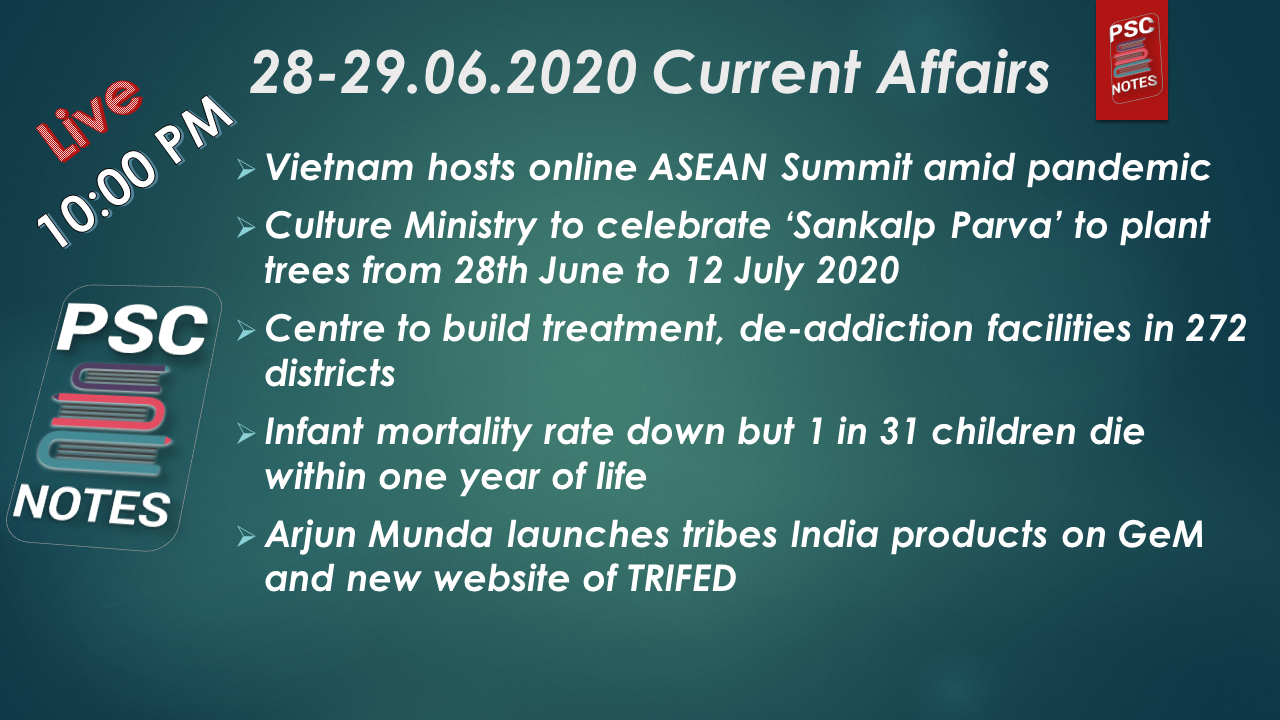KERALA
Centre allocates Rs 283 crore for Kerala’s noon meal programme
Union government has approved the Rs 449-crore noon meal programme for schools in Kerala for 2020-21 academic year.
The Union government representatives were in awe of the successful and creative implementation of the noon-meal programme in government and aided schools in Kerala. The practice of providing milk and egg to students as part of the programme was appreciated very much. The practices of providing breakfast to students, setting up of kitchen gardens, lab test of food samples, training sessions to cooking staff also impressed the central team.
The programmes proposed by the state government for setting up kitchen gardens in 9,025 schools in 2010-21 academic year got the stamp of approval. As per the scheme, every school would get Rs 5,000 for setting up a vegetable garden. The Centre has also approved the education department’s proposal to distribute locally available fruits to school students during seasons.
INTERNATIONAL
Vietnam hosts online ASEAN Summit amid pandemic
Southeast Asian leaders held their annual summit by video to show unity and discuss a regional emergency fund to respond to the immense crisis brought by the coronavirus pandemic.
Long-divisive South China Sea conflicts were also in the spotlight.
The leaders of the Association of Southeast Asian Nations talked online due to regional travel restrictions and health risks.
Vietnam, the current ASEAN chair, had planned face-to-face meetings, but most member states assessed it was still too risky for leaders to travel.
NATIONAL
Culture Ministry to celebrate ‘Sankalp Parva’ to plant trees from 28th June to 12 July 2020
On the call of the Prime Minister, the Union Culture Ministry will celebrate “Sankalp Parva” to plant trees from 28th June to 12 July 2020.
Prime Minister Narendra Modi has called for planting at least five trees either in Office campus or wherever it is possible, to ensure a clean and healthy environment of the country.
The Ministry of Culture recommends plants following
five trees which represent the herbal heritage of our country: (i) “Bargad” (ii) “Awla” (iii) “Pepal” (iv) “Ashok” (v) “Bel”.Centre to build treatment, de-addiction facilities in 272 districts
To step up the battle against drug use and alcoholism, the Centre rolled out its action plan for 2020-21 with focus on building treatment and de-addiction facilities in 272 districts identified as vulnerable based on prevalence of substance abuse and access to drugs. The focus will be on reaching the youth and the high risk population.
Since 125 of the 272 districts do not have Integrated Rehabilitation Centres for Addicts (IRCAs) supported by the Centre, it has been decided to set up addiction treatment facilities in government hospitals through the National Drug Dependence Treatment Centre of All India Institute of Medical Sciences.
The list of 272 districts includes 18 from Punjab, which has been struggling to deal with the drug problem. In Maharashtra, four districts — Pune, Nagpur, Nashik and Mumbai — have been identified as vulnerable. In Delhi, all 11 districts are vulnerable and treatment facilities are proposed to be set up in north, west and Shahdara district. In Uttar Pradesh, around 33 districts have been identified as vulnerable. Gujarat has eight vulnerable districts.
Going by the findings of the ‘Magnitude of Substance Abuse in India’ report 2019, of the estimated 16 crore alcohol consumers in the country, 19% were dependent on alcohol. Around 5.7 crore users required treatment. Among drug users 72 lakh required treatment for cannabis, 60 lakh for opioids and 11 lakhs for sedatives.
Infant mortality rate down but 1 in 31 children die within one year of life
The latest data released by the Registrar General and Census Commissioner of India shows that infant mortality rate for the country has come down to 32 in 2018 from 40 in 2013, a decline of eight points over last five years and an annual average decline of about 1.6 points. Despite this decline, one in every 31 infants at the national level, one in every 28 infants in rural areas and one in every 43 infants in urban areas still die within one year of life.
Madhya Pradesh paints a worrisome picture with the highest IMR at 48 and Kerala has the lowest IMR of 7.
The Sample Registration System – Statistical Report 2018 also shows that the sex ratio at birth (SRB) for the country has gone up by three points to 899 girls per 1,000 boys in 2016-18 (three years average) from 896 in 2015-2017.
In 2018, around 82.5% of the deliveries were institutional which includes government as well as private hospitals. The percentage of institutional deliveries in urban areas is 94.7 as against about 78.1 %recorded in rural areas.
The
report also shows that at present, a rural woman (having a TFR of 2.4) at the national level would have about one child more than an urban woman (having a TFR of 1.7), on an average.
Arjun Munda launches tribes India products on GeM and new website of TRIFED
Union Minister of Tribal Affairs Arjun Munda launched through a video conference the tribes India products on Government e-Marketplace – GeM and a new website of TRIFED.
The TRIBES India store on Government eMarketplace can now help in facilitating purchases by the government.
The new website has all relevant details about the schemes and initiatives to benefit tribal communities.
The Team of “Trifed Warriors” will take Tribal Commerce based on forest products, handlooms and handicrafts to a new high for transforming tribal lives and livelihoods.
